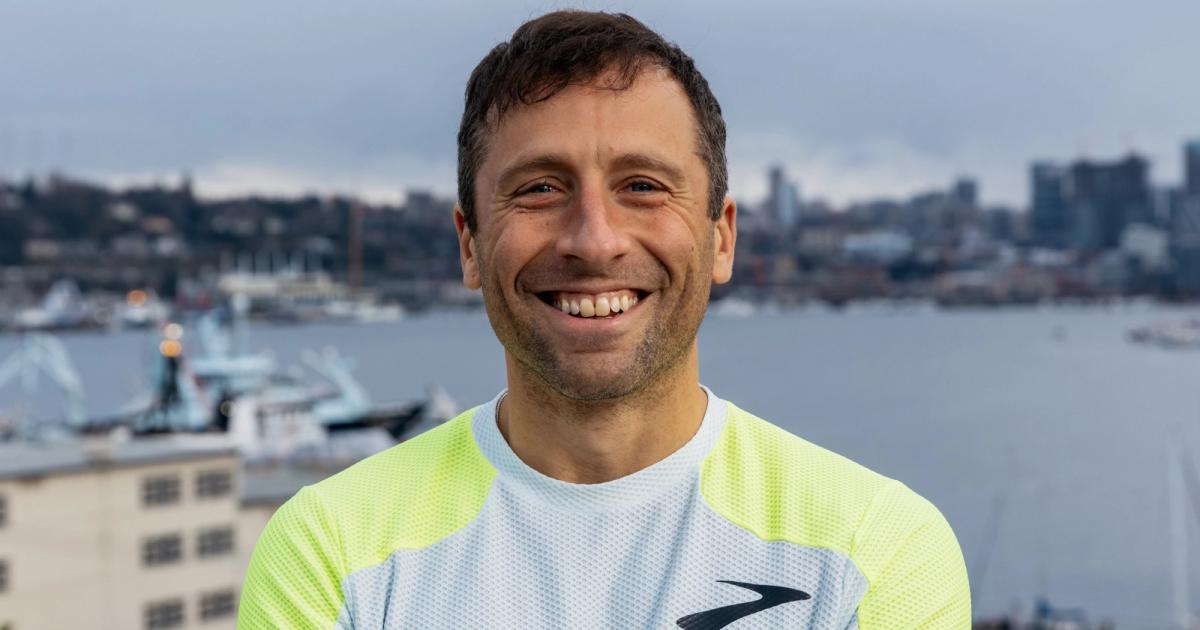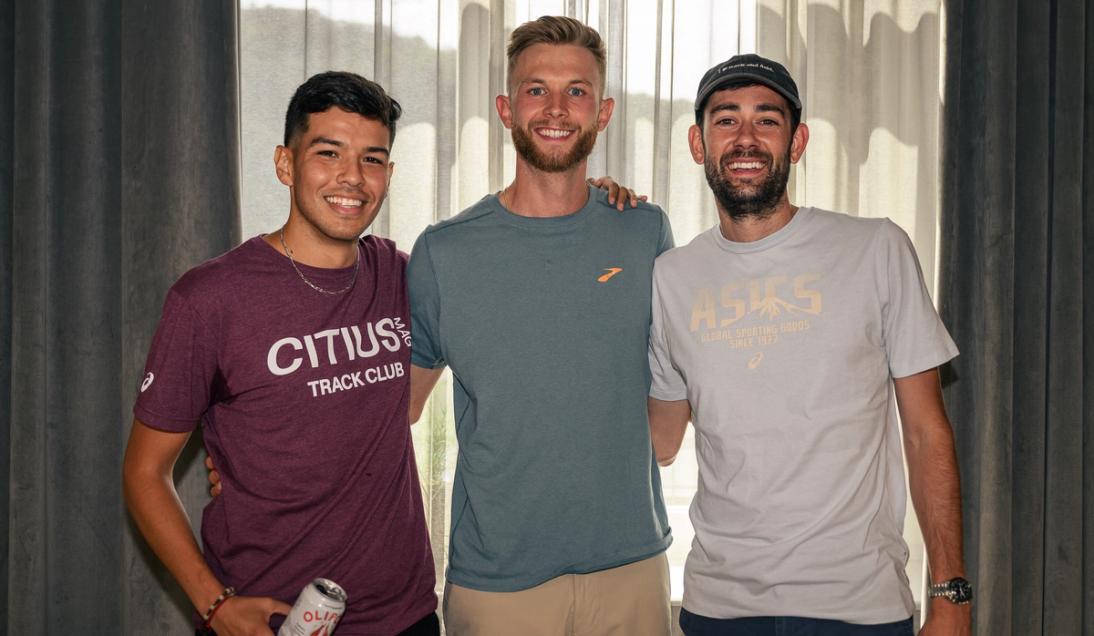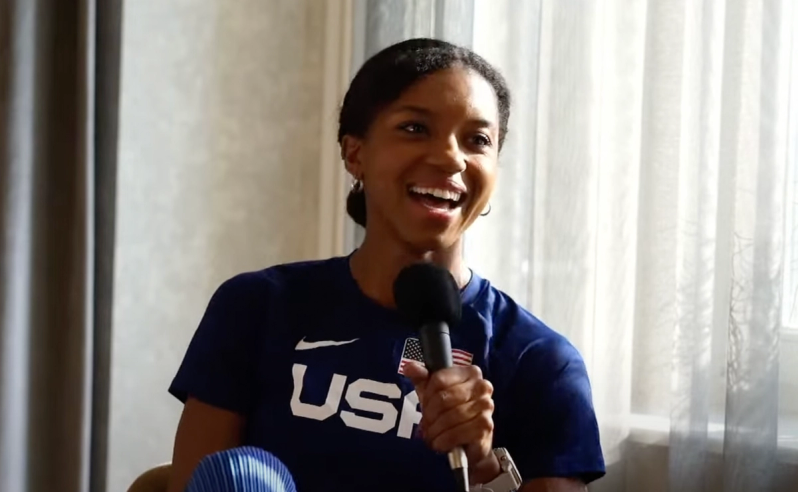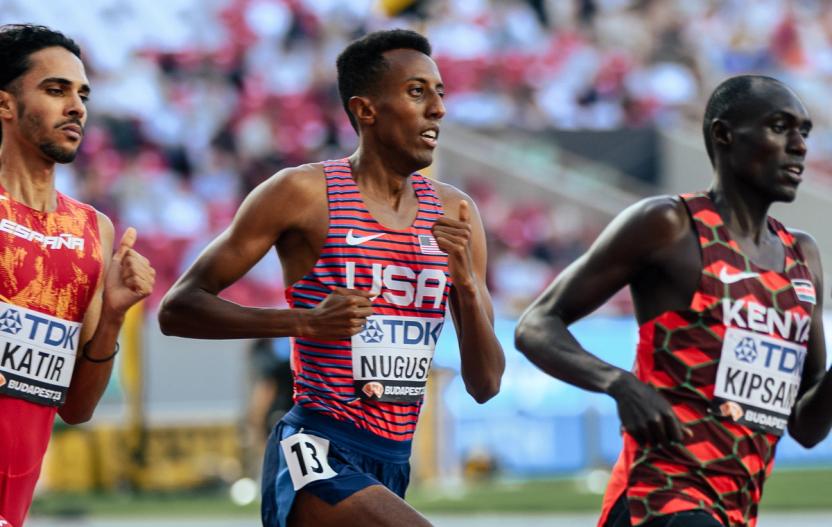September 11, 2023
Listen
"I still haven’t processed it. I haven't celebrated at all, I had to go back to work and take care of my daughter. Actually, I woke her up from her nap to watch Josh win because I was like, ‘He might do it, so let's wake her up just so she will remember’... I hear people say this and I know what they mean; you just get humbled by it. You're like, ‘Man, that was really hard to do.’"
Danny Mackey has been the coach of the Brooks Beasts since the team started in 2013 and can now say that he’s the coach to a world champion after Josh Kerr’s stunning 1500m victory in Budapest. The Beasts have put together a strong year with Nia Akins winning the U.S. indoor and outdoor 800m titles before finishing sixth in the World Championship final. Marta Freitas and Isiah Harris also competed at the World Championships. Henry Wynne is running strong with a fifth-place finish at USAs and then a 3:53.70 mile PR at Falmouth this summer.
It’s been a culmination of more than a decade of hard work, learning and adapting for coach Mackey and his meticulously scientific training perspective and approach. He’s vocal about doing things the right way and not operating in any gray zone. You’ll learn much more in this episode that goes beyond just the making of a world champion.
A quick note before we start the interview, this has also been the most tragic and difficult year of Mackey’s life. As reported by LetsRun.com, back in March, his fiancee died by suicide and he is now raising his five-month-old daughter on his own. He took a few days away from the team and coached remotely from the U.S. while the team was in Budapest. The pain and loss is still felt by Mackey and he’s been resilient for his fellow coaching staff and athletes all along the way.
Host: Chris Chavez
Guest: Danny Mackey
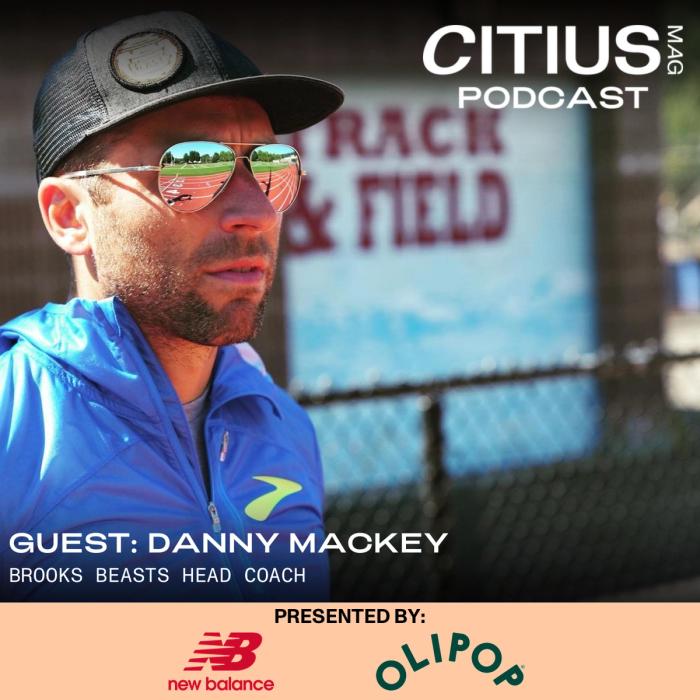
NOTABLE QUOTES
The following quotes have been edited lightly for clarity.
Faces have come and gone over the years but your job has kind of always been the same: deliver medals and get the Brooks spikes across the finish line first–and it finally happened.
“I still haven’t processed it. I haven't celebrated at all, I had to go back to work and take care of my daughter. Actually I woke her up from her nap to watch Josh win because I was like, ‘he might do it, so let's wake her up just so she will remember’... Like even yesterday [at the 5th Avenue Mile] they had the camera on Josh and they replayed his last 200 and I still got goosebumps. It's been three weeks, so I don't know if I'll ever process it. I hear people say this and I know what they mean; it's like you just get humbled by it. You're like, ‘man, that was really hard to do.’”
It’s been over a decade since you got hired with Brooks–how has your coaching style and approach changed?
“The biggest thing that I've changed is that I'm a lot more lax about things. There’s objective truths in coaching that are maxims that I stick to. And then everything else is this vast art of being subjective on what's happening on the day–how they look, what my gut is telling me, and then also giving them more space. So being intentional about when I do that… A lot of the rookies, they ask me a question like, ‘I think you're supposed to know this answer’ but I just let them do it. And same thing before races or sometimes pre-race talks. It's one or two things and that's it. You just have to figure it out, you know, the rest of it. If somebody doesn't do something I don't get as worked up about it.”
At any point in the past 11 years, did you ever think, ‘alright, this is it, it's not working out? Maybe this is the end of the team?
“Oh, yeah. There were two moments. Dan Pfaff, who is a really close friend and my mentor… he just saw me at the meet and then that night I got a text and he just said, ‘don't think about quitting’. And I was like, ‘that's exactly what I was going to do’. So yeah, for sure, when you put your heart out there and somebody exploits that. Team performances don't bother me as much. That's a game. I tell the team this all the time: ‘You've got to be good at losing and willing to lose. That's the only way you truly are a champion.’”
I'm sure a lot of people want to hear about Josh. When did this Josh master plan really start to take fold? How did you approach Josh?
“Last year was frustrating. So we made a couple of adjustments with being a little bit ahead of schedule this year. We were just more patient with how many races we did and started a little bit earlier in terms of some of the harder stuff that we did. And then we paid attention to nutrition. He talks about that a little in some of the interviews. So we just started ahead of time. Not that we changed anything, but that was when the clock started.”
There's a big focus on Josh, but then you've also got Isaiah and Henry running well. How did you orchestrate practices where these guys were involved in a lot of these workouts with Josh but were also reaping some benefits on their own?
“One of the things I shifted in the last five years is that we now practice together on our hard days. I used to have it so that the 800 crew would go and then the 1500 crew would go, and that was so I could pay attention to them more. But now we all practice together and they can learn from each other on hard days. It's more fun to have everybody there. Now Sara has to treat 13 athletes, Julian's literally pacing, taking pictures, coaching, and then I’m having to talk to everybody. It's madness. Like I'm tired on workout days. But yeah, I coach the team, but I also coach them individually. They all have their individual plans that I take time each week to sit down and send to each person. I've thought through what they need to do and make sure that they know that I have time if they need something. So I communicate with them on an individual level.”
Are there things you're picking up from the NBA and how those coaches operate where you are trying to dig and find these little tips and tricks that make that little marginal gain?
“I pay attention very closely to what people do. I'm watching drills and body language. Paying attention to the athletes. I can tell you right now, when I show up to practice, I know within a couple of miles [how they're feeling] because I read their training plans… I can also tell you, like when they show up, who's going to have a good workout or not, because I know how they walk and how they interact with teammates. I know what their normal is. So once those indicators start going on where I need to pull them aside, that's when I do.”
How did you approach the World final? You got little glimpses of Jakob where you could see how strong he was in Lausanne and Josh was in that race. But were there little cues along the way that helped you analyze, ‘okay, this is when Josh is going to make that move with 200-meters to go’?
"We did a couple of key workouts as we got closer to Worlds where we were hitting cutdown splits each 100m – because all that data is online. If you can do it, which is not easy to do in practice, then you have a chance to win....I looked at it as getting his body and mind ready to do that stuff."
Nia was so impressive at USAs and at Worlds you could tell that she was locked in. And in the conversations with her, just this self-belief in her that started during the indoor season coming away with the U.S. title and then outdoors too. How much of this year was on the mental side with Nia just breaking through there and then having that translate to times?
“So the mental stuff that she was working on. Some of it was involved in communicating with me and then the communication with me caused shifts in workouts. So I think it started with the conversation we had when she didn't make the final at USAs last year…
When she was frustrated about that, I said, ‘well, we could do things differently. You have to be all in’. And that's hard. You have to be thinking every day, ‘am I following the plan? Does the plan make me feel how I think it should make me feel?’...
I think it started with her. Thinking of herself as being somebody that could be that good, even though she hadn’t done it yet. And then the next step was starting with ‘okay, how does that act out? What's the plan going to look like?’ It was so fun working with her this last year, and as a coach, really gratifying watching her at Worlds.”
HOW TO SUPPORT THE PODCAST
– Visit CITIUSMAG.com | Our brand-new website hosts tons more podcasts, articles, videos and more. Track and field storytelling all in one place.
– Subscribe and leave a review on Apple Podcasts.
– Pledge any dollar amount to us on Patreon.com/CITIUSMAG or Hit us on Venmo @CITIUSMAG
Support The Sponsor

OLIPOP
OLIPOP is a prebiotic soda with only 2-5g of sugar that is actually good for your gut health. – and it's delicious. Use code CITIUS25 for 25% off non-subscription orders. Learn more here.

NEW BALANCE
NEW BALANCE just dropped their 2023 New York City Marathon collection. Check out their official apparel and shoes from training, to the finish line, and beyond. I've been rocking the FuelCell SC Elite v3 for my marathon training. Shop here.
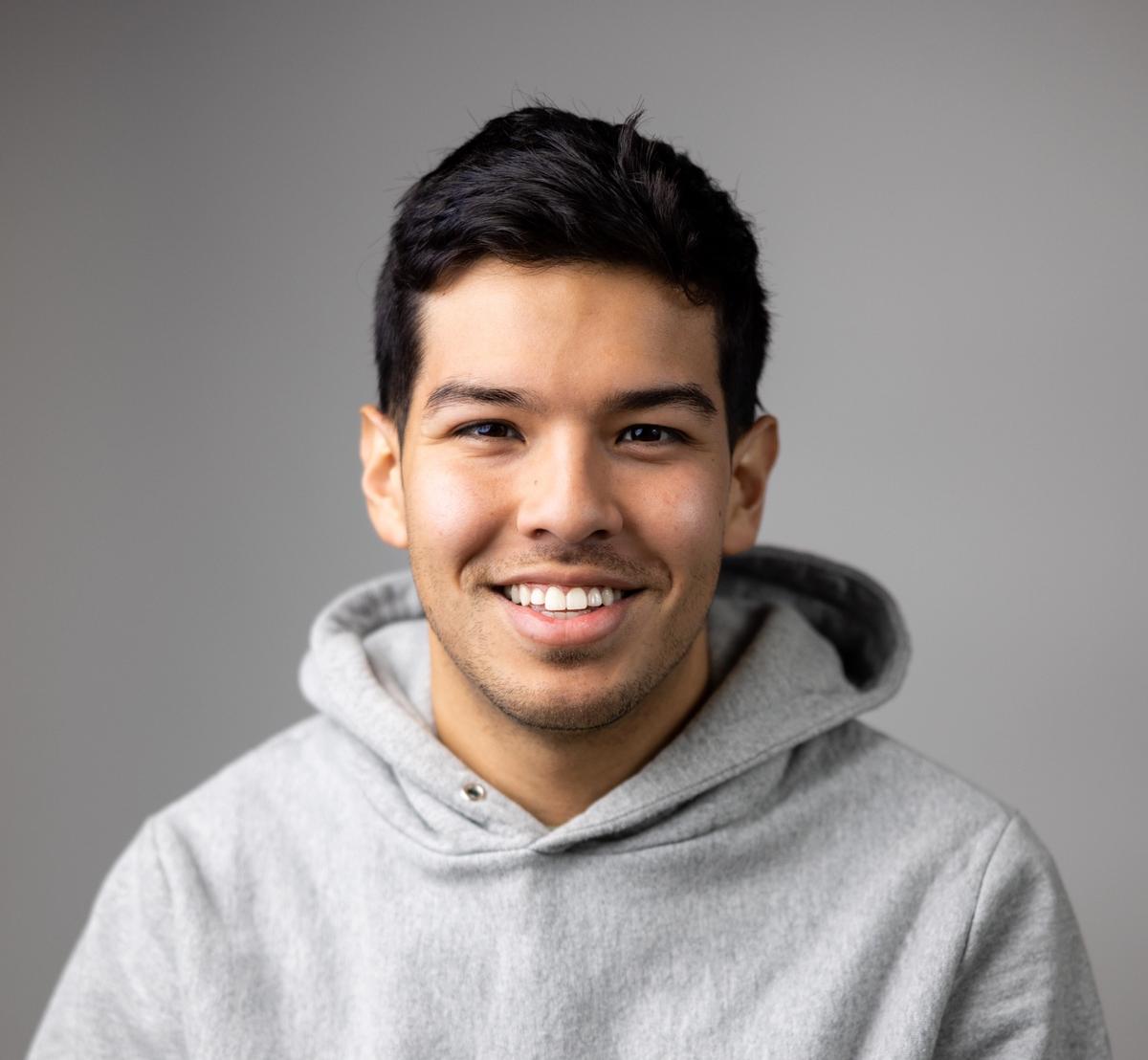
Chris Chavez
Chris Chavez launched CITIUS MAG in 2016 as a passion project while working full-time for Sports Illustrated. He covered the 2016 Olympics in Rio de Janeiro and grew his humble blog into a multi-pronged media company. He completed all six World Marathon Majors and on Feb. 15th, 2025 finally broke five minutes for the mile.
